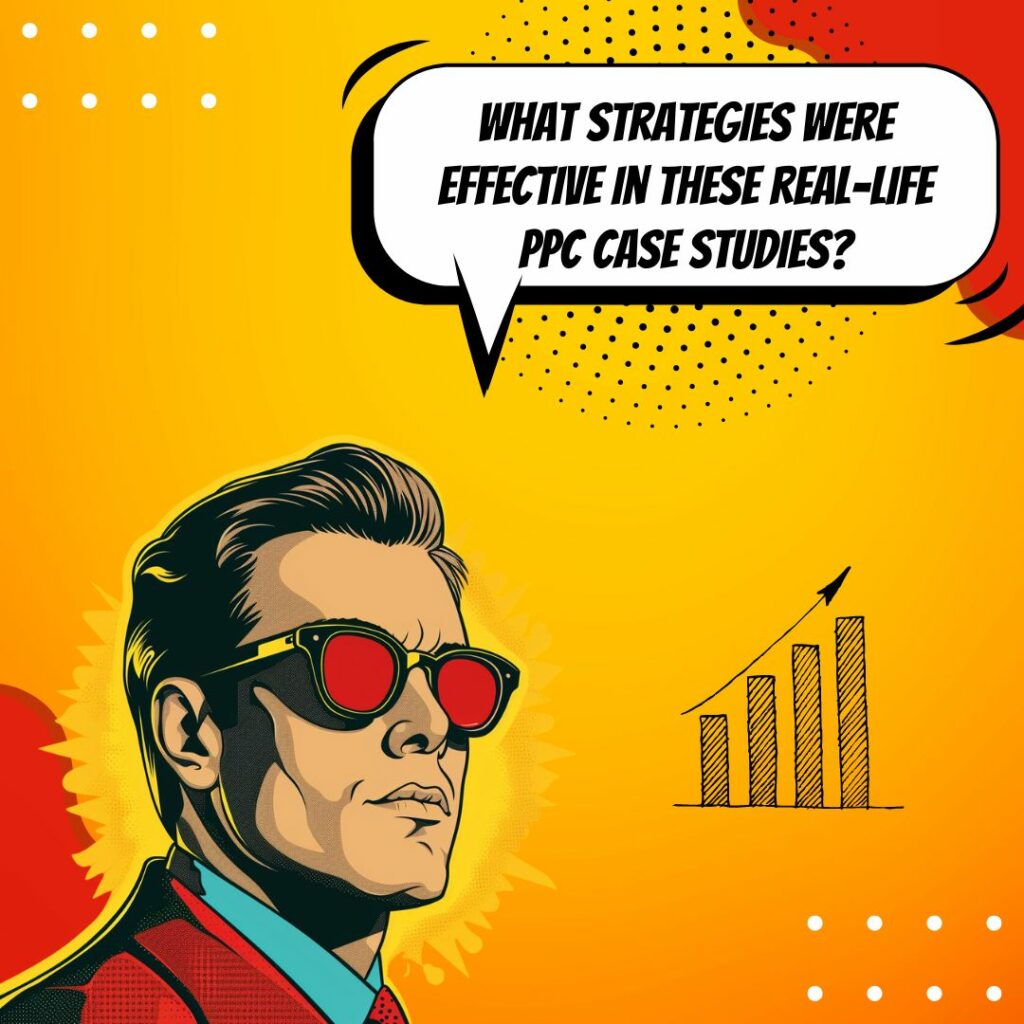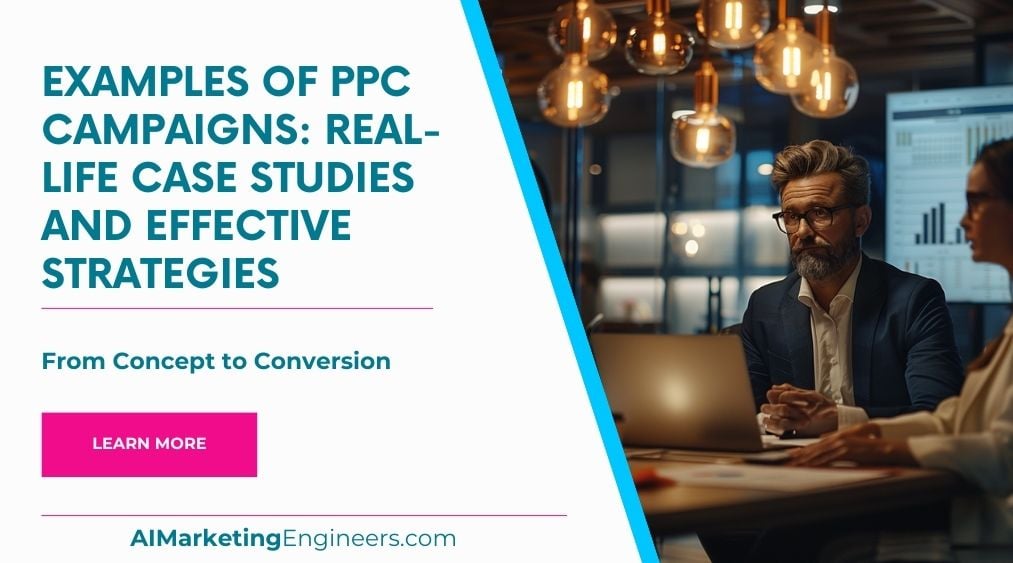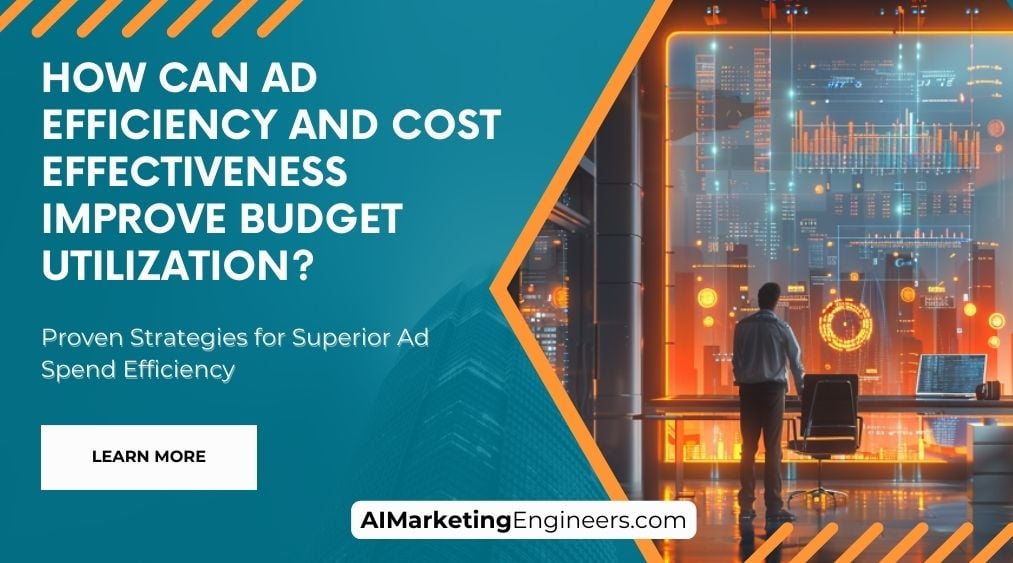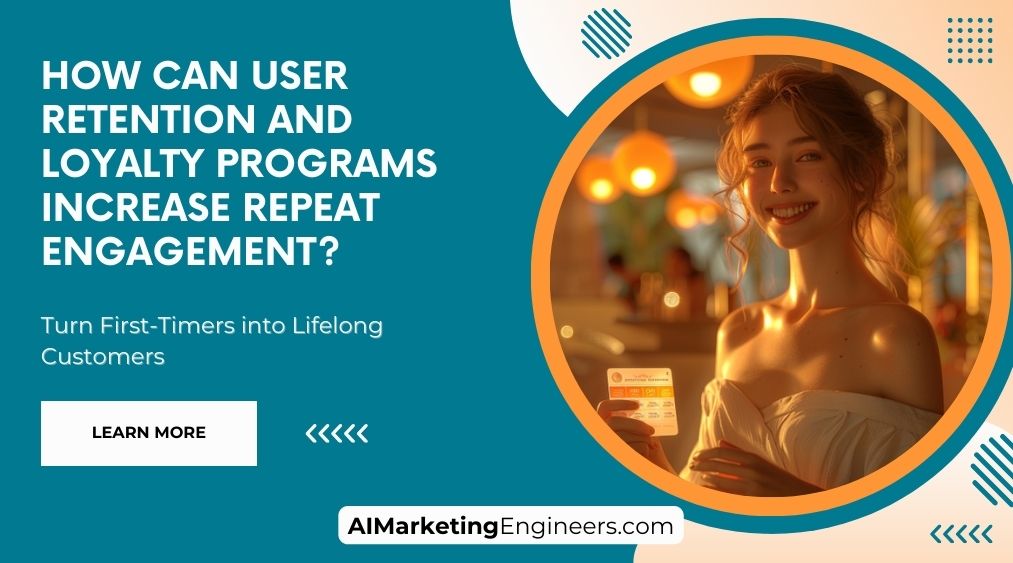Key Takeaways
✅ Successful PPC Campaigns Can Achieve Significant Results: From generating millions of impressions to substantial revenue, PPC has proven its worth. One notable campaign for Save the Children secured over 10 million views and a phenomenal ROAS of 10x, leading to $1 million in revenue.
✅ Effective Strategies Include Testing, Optimization, and Scaling: Fine-tuning your approach is key. As seen with 686's apparel campaign, strategic tweaks can slash costs by 30%, drive traffic up by 200%, and lift inquiries by 40%. This demonstrates the value of iterative refinement in PPC.
✅ Creative and Innovative Approaches Can Stand Out: Be bold, be different. Converse grabbed attention by tapping into cultural search terms, while Ann Summers' cheeky ad copy on trending topics garnered significant exposure without breaking the bank.

Introduction
Are you tossing coins into the well of online advertising, hoping for a ripple or ready to create a splash with your PPC campaigns? Imagine turning a few clicks into a flow of customers. What separates the hidden gems from the handfuls of missed opportunities in the world of Pay-Per-Click? Real-Life Case Studies and Effective Strategies showcase what's truly possible.
Think about this: Alec Brownstein landed his dream job on a $6 budget, while The Perfume Shop's out-of-the-box YouTube strategy made waves in the online fragrance market. Such innovative approaches to What is a PPC Campaign? leave us wondering — could this be the secret sauce to elevating your brand's visibility and hitting those seemingly elusive sales targets?
In this article, you'll discover ground-breaking perspectives, modern trends, and indispensable solutions to enhance your return on investment. Stick around to uncover actionable insights and transformative information that could rewrite your marketing strategy's success story.
Top Statistics
| Statistic | Insight |
|---|---|
| Projected Spend on Search Advertising: Companies are projected to spend $190.5 billion globally in 2024. | With such a significant chunk of change on the table, it's clear companies believe search ads are key to finding customers. |
| Return on Investment: Businesses make $2 for every $1 spent on PPC. | This 100% ROI is telling: it means businesses are literally doubling their money on PPC campaigns. |
| Mobile Advertising Spend: Set to reach $146 billion by 2023. | As smartphones glue to hands everywhere, the savvy move is to meet people where they're at: on mobile. |
| Ad Engagement: 60% of mobile users click on a PPC ad at least once per week. | With more than half of users engaging weekly, PPC ads are not just background noise—they're front and center. |
| PPC Adoption: 45% of small businesses invest in pay-per-click advertising. | Close to half of small businesses are putting their money on PPC, showing that it's not just a big player's game. |
Understanding PPC Campaigns
When you hear someone talking about a PPC Campaign, they're referring to a strategy where businesses pay a fee each time one of their ads is clicked. It's essentially a way of buying visits to your site, as opposed to attracting them organically. Search engines like Google and Bing offer prime digital real estate for these ads and provide platforms such as Google Ads and Microsoft Ads for advertisers to launch their PPC campaigns. This method ensures immediate visibility and attracts targeted traffic quickly. PPC campaigns can be customized to reach specific demographics, locations, and even user behaviors. The flexibility and precision of PPC make it a powerful tool for businesses looking to enhance their online presence.
Learning from Successful PPC Campaigns
One of the most intriguing case studies involves Alec Brownstein's guerrilla job hunt. In 2009, Brownstein cleverly bid on the names of top creative directors using Google AdWords. The total cost? A mere $6, leading to 4 interviews and 2 job offers. Fast forward to The Perfume Shop's campaign; they managed to leverage YouTube's targeting tools to match celebrity perfumes with celebrity videos. This case showed that with the snugly fitting strategy, PPC campaigns can achieve viral success via platforms beyond traditional search engines. Additionally, companies like Warby Parker have successfully used PPC to boost brand visibility and sales. Their targeted approach and continuous optimization have set a benchmark for effective PPC strategies.
Strategies for Successful PPC Campaigns
To thrive in the competitive landscape, aligning PPC campaign goals with a company's broader objectives is critical. By doing so, you can measure success accurately and ensure that the campaign contributes to the business's overarching targets. Another crucial component is the allocation of an ample budget. Having adequate funding for a PPC campaign allows for a well-fueled push in the crowded digital marketing space. It's also essential to conduct thorough keyword research to identify the most effective terms for your ads. Creating compelling ad copy that resonates with your target audience can significantly improve click-through rates. Regularly reviewing and adjusting bids can optimize campaign performance and budget allocation.
Tools for Effective PPC Campaign Management
For managing PPC campaigns, several tools can significantly aid in the process. Marin Software, for instance, is known for seamless integration with Google and Facebook Ads. WordStream Advisor is the go-to for budget management, while SpyFu lays bare the competitive landscape by revealing competitors' PPC secrets. These tools are designed to give marketers a heading in the complex world of pay-per-click advertising. Utilizing these tools can streamline campaign management and improve efficiency. Additionally, tools like SEMrush and Ahrefs provide valuable insights into keyword performance and competitive analysis. Regularly updating and integrating new tools can keep your campaigns ahead of the curve.
Best Practices for Optimizing PPC Campaigns
Running successful PPC campaigns isn't just about setting them up; it's about ongoing optimization. Best practices include structuring your PPC campaign effectively, creating a comprehensive keyword strategy, and crafting engaging ads that resonate with your audience. But it doesn't stop there—monitoring and refining campaigns on the fly is crucial to ensure that every click counts and resources aren’t squandered. Utilizing A/B testing can help determine the most effective ad variations. Implementing negative keywords can prevent your ads from showing for irrelevant searches. Regularly analyzing performance metrics and making data-driven adjustments can lead to continuous improvement and better results.
Using PPC Report Templates for Analytics
Backed by multi-channel dashboards, marketers can observe their PPC campaign's performance across different platforms. Budget forecasting templates also play an essential role; they help project spending and sound the alarm when you're close to exceeding financial limits. On the simpler end, basic PPC templates can streamline quarterly reporting by automatically calculating key performance metrics. These templates provide a clear overview of campaign performance, helping identify areas for improvement. Detailed reports can offer insights into user behavior and ad effectiveness. Utilizing these analytics can drive strategic decisions and enhance overall campaign success.
Maximizing the Impact of PPC Campaigns
PPC campaigns serve as a compelling bridge, connecting advertisers directly to an audience actively seeking what they have to offer. When done right, PPC can not only elevate traffic but also boost sales, and foster brand awareness, all while offering a measurable return on investment. Armed with the right tools, strategy, and best practices, advertisers can fine-tune their campaigns to capture the attention—and clicks—of potential customers. Continuous learning and adaptation are crucial for staying competitive in the dynamic digital landscape. Building a robust PPC strategy involves regular experimentation and optimization. Ultimately, effective PPC campaigns can drive significant business growth and success.
AI Marketing Engineers Recommendation
Recommendation 1: Optimize for Voice Search in Your PPC Campaigns: With the rise of smart speakers and voice-activated digital assistants, voice search is becoming increasingly important. Data shows that voice shopping is set to jump to $40 billion by 2022. To capitalize on this trend, businesses should include natural language phrases and long-tail keywords in their PPC campaigns that match the conversational tone of voice searches.
Recommendation 2: Leverage Audience Data to Enhance Ad Personalization: Recent statistics indicate that personalized ad campaigns have significantly higher performance, with studies suggesting that conversion rates can improve by up to 10 times with personalized messaging. Tailor your PPC campaigns by diving deep into audience data—demographics, interests, behavior—and use this information to deliver highly personalized ads that resonate with your target audience.
Recommendation 3: Adapt to Visual Search with Image Extensions in Ads: Visual search is gaining traction, with platforms like Google and Bing introducing image extensions for ads. Incorporating image extensions can increase the click-through rate by allowing users to see a preview of the product directly in the search results. Implement image extensions in your PPC campaigns where relevant to make your ads more compelling and to provide a richer user experience.
Relevant Links
- Revolutionize Your Marketing with AI
- Master Baidu SEO with Advanced Strategies
- Leverage Analytics for Market Understanding in China
- Key PPC Metrics for Success in China
- Boost ROI with Performance Marketing in India
Conclusion
When you take a step back and look at the wide array of PPC campaigns out there, you can't help but see the sheer creativity and strategic thinking that goes into them. Whether it was Alec Brownstein's ingeniously personal job hunt or The Perfume Shop's targeted approach on YouTube, these real-life case studies underscore the versatility and targeted nature of PPC advertising. They also illustrate how a well-thought-out PPC campaign can achieve surprising results without the necessity of an enormous budget.
At the heart of these successes lies a clear alignment with company goals, an adequate budget, and a thorough understanding of the platforms you're using, be it Google Ads or Microsoft Ads. By utilizing tools like Marin Software, WordStream Advisor, and SpyFu, even the most complex campaigns can be managed and optimized to ensure you're getting the most bang for your buck.
And while the strategic deployment of these campaigns is crucial, let's not forget the importance of monitoring and refining your approach. With multi-channel dashboards, budget forecasting templates, and simple PPC templates, staying on top of campaign analytics has become increasingly accessible.
In essence, PPC campaigns are as much about precision and adaptability as they are about the flashy creativity of the ads themselves. As we reflect on these case studies and strategies, consider this: Are your PPC efforts truly aligned with your business objectives? How can you use the insights gleaned to sharpen your next campaign? It's fertile ground for thought – and action.
FAQs
Question 1: What is PPC marketing?
Answer: PPC marketing, also known as pay-per-click marketing, is a strategy where advertisers pay a fee each time one of their ads is clicked. It’s essentially a way to buy visits to your site rather than trying to “earn” those visits organically.
Question 2: What is Campaign Management?
Answer: Campaign Management is overseeing the whole process of planning, executing, and monitoring advertising campaigns, primarily online ones like Google AdWords, ensuring the best possible performance and ROI.
Question 3: How do AdWords work?
Answer: AdWords operates on a bidding system where you set a bid for how much you’re willing to pay per click on your ad. However, the actual amount you end up paying is usually less, depending on the ad rank of the competitor directly below yours.
Question 4: What is the actual cost per click?
Answer: The actual cost per click is often less than the maximum bid that an advertiser sets in AdWords because it’s calculated during the auction, taking into account various factors including the ad rank of the next highest bidder.
Question 5: What are the most vital KPIs for success measurement?
Answer: Key Performance Indicators (KPIs) for PPC include metrics like effective cost per thousand impressions (eCPM), click-through rate (CTR), cost per click (CPC), and the overall return on investment (ROI).
Question 6: How can I boost my Ad's number of impressions?
Answer: To boost your ad's impressions, you need to assess factors such as budget, ad frequency, and audience targeting. Sometimes adjusting bids, expanding your audience, or optimizing your ad content can help increase visibility.
Question 7: What is the relationship between campaign and account spending levels and budget allocations?
Answer: The relationship between campaign and account spending is anchored in the strategy behind how budgets are allocated across various campaigns to fulfill marketing objectives, ensuring optimal spending and campaign performance.
Question 8: How do you use the Google Ads interface to set up and manage campaigns?
Answer: The Google Ads interface is utilized to create campaigns, organize ad groups, set budget limits, choose target audiences, place bids, and track performance, amongst other tasks, to effectively manage PPC campaigns.
Question 9: How do you use Google Analytics to measure the success of a PPC campaign?
Answer: Google Analytics helps in measuring PPC success by providing data on user behavior, conversion tracking, and performance analysis, to give insights on what’s working and what needs to be improved in your PPC campaigns.
Question 10: What are some effective strategies for writing PPC ads?
Answer: Some effective PPC ad strategies include addressing the reader directly, incorporating strong calls to action, using relevant keywords, and ensuring your ads are being tested and optimized for performance.
Academic References
- Dellarocas, C. (2012). The Digitization of Word of Mouth: Promise and Challenges of Online Feedback Mechanisms. Management Science, 58(10), 2093-2110. This comprehensive study offers insight into pay-per-click (PPC) mechanisms, connecting their impact and relevance in the intertwining spheres of marketing, computer science, and economics. Dellarocas (2012) calls for an integrated review to consolidate existing PPC research and outline the path for future inquiries into their sophisticated dynamics.
- Jansen, B. J., & Schuster, S. (2011). Bidding on the Buying Funnel for Sponsored Search and Keyword Advertising. Journal of Electronic Commerce Research, 12(1), 1-18. Jansen and Schuster (2011) analyze PPC within the scope of search engine marketing, considering the techniques behind employing search engines for promoting products and services based on keyword searches. The study documents PPC's deep entrenchment in keyword advertising and its significant role in contemporary marketing strategies.












